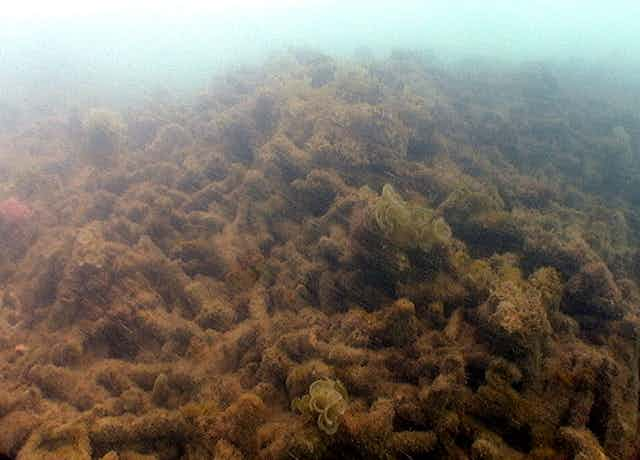Announcements last week of the escalating damage to the Great Barrier Reef confirm Australia’s most famous and intensely managed Marine Protected Area has not been properly protected. UNESCO’s recent review shows Australia is in danger of becoming the first developed country to have World Heritage Status of an area revoked.
The Government has repeatedly claimed that because Australia has a disproportionate share of the world’s marine parks it leads the world in marine conservation. But does simply having a lot of marine parks mean Australia is doing a good job?
It is increasingly obvious that management within the whole of the protected areas network has been, and remains, inadequate.
This management failure has been made possible by distortion of the principles of both investigative science and evidence-based policy and management. The basic tenets of science, in particular accuracy and precision, and the principles of evidence-based adaptive management, have been subverted by a culture of uncritical promotion of marine parks.
The Australian Government has known for many years that the major man-made causes of damage to the Reef come from land-based activities, predominantly agriculture, mining, inappropriate coastal development and the insidious effects of climate change. But the recent review confirms that even with this knowledge, the Government has failed to manage them.
In reality Australia’s approach to the whole marine parks process - an approach of claiming protection without addressing carefully identified threats - has been inappropriate. It distracts from addressing real problems.
Failures in the interaction between science and management are not entirely by accident or oversight. They have been underpinned by delusion about the level of protection that is actually provided by Australian marine parks.
Internationally, there is a commitment for marine parks to be “Comprehensive, Effectively Managed and Representative”. But the commitment to effectiveness was removed early on in the Australia-specific principle, which calls for a “Comprehensive, Adequate and Representative” system of parks. The difference is telling. “Adequacy” refers to the number and size of parks, not what protection they provide and how effectively they do so.
The internationally accepted definition of the Precautionary Principle has been redefined by Australia specifically for marine parks to mandate that declaration of parks must not be constrained by scientific uncertainty, even if this uncertainty applies to the effectiveness of the parks themselves.
Threats to marine systems have not been properly identified. In fact, marine parks have deliberately not been established to address threats. All four of the goals and thirteen of the fourteen “selection principles” for the national system of marine reserves relate to what is in reserves, not biodiversity conservation, which is primary objective of the system.
Commonwealth marine park performance indicators do not assess whether the park provides biodiversity conservation against all threats, or even any single threat. There is no requirement to evaluate whether the park is providing effective protection. There is therefore no need to commit to appropriate adaptive management. This means governments do not have to provide the resources necessary to adequately manage the most significant threats - in particular those from agriculture and mining - even in the Great Barrier Reef Marine Park.
The Federal Government has systematically exaggerated claims of parks’ conservation benefits. Former environment minister Tony Burke made numerous unjustified and misleading assertions that closing areas to extraction represents permanent and even total protection. He avoided acknowledging that most of the major threats, including pollution, are in the form of injection, not extraction.
Exaggerated predictions of fisheries benefits have been based on underestimating decreases in catches due to area closures and unrealistic assumptions of net benefit from the export of fish from closed areas.
By not basing its management of marine environments on identified threats and by not efficiently addressing these threats, Australia has not only avoided the logical approach to the problem but it has actually ignored its own commitments. The InterGovernmental Agreement on the Environment requires, “ensuring that measures adopted should be cost-effective and not be disproportionate to the significance of the environmental problems being addressed”.
Unless Australia changes its approach to marine conservation and bases management on addressing the properly identified threats in proportion to their severity, our marine “protected” areas will continue to fail to provide effective protection.

